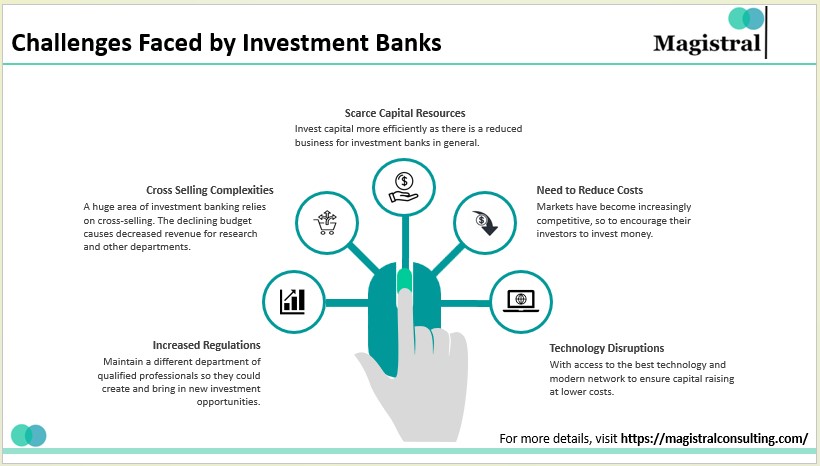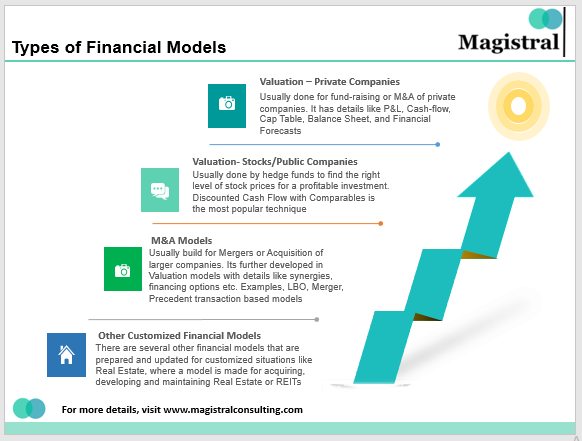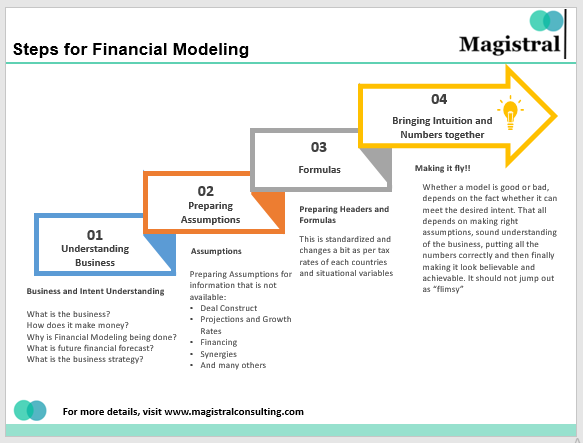Introduction
Financial Modeling Outsourcing refers to the practice of enlisting external service providers or specialized firms to handle the creation and maintenance of financial models. This involves assigning the tasks of designing, building and updating these models to professionals who possess the necessary expertise and resources.
Financial modeling plays a crucial role in the realms of business and finance, as it entails constructing mathematical representations of real-world financial situations. These models predict and evaluate various aspects of a company’s financial performance, such as revenue forecasts, cost analyses, investment valuations, cash flow projections, and scenario assessments. By providing insights into potential outcomes and associated risks, financial models facilitate decision-making processes.
Advantages of Financial Modeling Outsourcing
Financial modeling outsourcing offers several key advantages that organizations can leverage to enhance their financial planning and decision-making processes. Some common benefits include:

Advantages of Financial Modeling Outsourcing
Cost savings and scalability:
Financial modeling outsourcing presents a significant cost-saving opportunity compared to maintaining an in-house team. By outsourcing to external providers, organizations can avoid expenses related to hiring and training specialized staff, investing in technology infrastructure, and ongoing maintenance. This flexible approach allows businesses to scale their demand-based modeling needs, ensuring cost efficiency and resource optimization.
Access to specialized expertise:
Outsourcing financial modeling tasks grants organizations access to professionals who possess specialized knowledge and expertise in the field. These experts have a deep understanding of best practices, industry standards, and regulatory requirements. By partnering with these skilled professionals, organizations can ensure the accuracy, reliability, and compliance of their financial models, benefiting from their extensive experience and insights.
Enhanced efficiency and productivity:
Delegating financial modeling tasks to external experts allows internal teams to focus on core competencies and strategic initiatives. By entrusting time-consuming and specialized tasks to external providers, organizations can streamline their operations, improve overall productivity, and allocate resources more effectively. This enables internal teams to concentrate on high-value activities such as data analysis, decision-making, and strategy formulation, ultimately driving organizational growth.
Improved accuracy and reliability:
External companies that offer financial modelling carry out strict quality checks. They use advanced modelling approaches, follow industry best practices, and do thorough validations. Organizations may make sure that their financial models are accurate and reliable by utilizing their knowledge and experience. As a result, financial estimates and analyses become more accurate and reliable, facilitating the making of well-informed decisions.
Risk Mitigation:
Financial modeling outsourcing helps organizations mitigate risks by leveraging external expertise. External providers have extensive experience across various industries and markets, enabling them to offer valuable insights and identify potential risks or limitations in financial models. They can also provide independent validation and verification of models, reducing the chance of errors or biases. By tapping into their knowledge, organizations can make more informed decisions and reduce exposure to financial risks.
In essence, financial modeling outsourcing offers numerous advantages, including cost savings, access to specialized expertise, enhanced efficiency and productivity, improved accuracy and reliability, and risk mitigation. By leveraging these benefits, organizations can optimize their financial planning and decision-making processes, gain a competitive edge, and achieve better financial performance.
Challenges of Financial Modeling Outsourcing
While financial modeling outsourcing offers numerous benefits, it is crucial for organizations to be aware of the challenges and risks associated with this practice. By understanding these potential pitfalls, businesses can take proactive measures to address them effectively. Here are some of the significant challenges and risks in financial modeling outsourcing:
Data security and confidentiality concerns:
Organizations must divulge sensitive financial data to outside sources when outsourcing financial modelling tasks. To guard against unauthorized access, security breaches, and abuse of sensitive data, it is crucial to make sure that effective data security measures are in place. Throughout the outsourcing process, it is crucial to protect intellectual property and uphold confidentiality agreements.
Communication and coordination challenges:
Effective communication plays a vital role in successful financial modeling outsourcing. Geographical and cultural differences, language barriers, and time zone disparities can hinder seamless collaboration between organizations and external providers. It is crucial to establish clear channels of communication, define expectations, and maintain regular updates to ensure effective coordination throughout the outsourcing engagement.
Quality control and standardization:
Maintaining consistency and quality across outsourced financial models can be challenging. Organizations should establish robust processes and standards to ensure that the models meet their specific requirements and adhere to industry best practices. Regular monitoring and quality control checks should be implemented to maintain the desired level of accuracy and reliability.
Dependency on external providers:
Outsourcing financial modeling tasks means relying on external providers to deliver accurate and timely results. Organizations must carefully select reputable and reliable providers with a proven track record. Building strong relationships, maintaining open lines of communication, and conducting periodic performance evaluations are essential to ensure that the outsourcing partner consistently meets expectations.
Regulatory and compliance considerations:
Financial models must adhere to rules and laws particular to their business. To avoid any compliance difficulties, organizations need to make sure that external providers are knowledgeable of these rules. During the outsourcing process, regulatory compliance with regulations like the Sarbanes-Oxley Act (SOX) or International Financial Reporting Standards (IFRS) should be thoroughly assessed and addressed.
By proactively addressing these challenges and risks, organizations can mitigate potential pitfalls associated with financial modeling outsourcing. Implementing robust data security measures, fostering effective communication, establishing quality control processes, selecting reliable providers, and ensuring regulatory compliance are key steps toward successful outsourcing engagements.
Magistral’s Services on Financial Modeling Outsourcing
Magistral Consulting is recognized as a leading provider of specialized financial modeling outsourcing services and solutions. With a proven track record of delivering outstanding results, we offer a comprehensive range of services tailored to meet the diverse needs of organizations across industries.

Magistral’s Services on Financial Modeling Outsourcing
Unparalleled Expertise and Specialization:
We take pride in our team of highly skilled professionals who possess extensive expertise in financial modeling. Our experts are well-versed in industry best practices, regulatory requirements, and the latest advancements in financial modeling techniques.
Tailored and Customized Solutions:
Whether it involves developing financial models for revenue forecasting, cost analysis, investment valuation, or scenario analysis, we work closely with clients to thoroughly understand their needs and deliver solutions that align with their strategic goals.
Cost-Effectiveness and Scalability:
Recognizing the importance of cost savings and scalability in today’s competitive business environment, we offer a cost-effective outsourcing solution. By entrusting financial modeling tasks to us, organizations can significantly reduce costs compared to maintaining an in-house team.
Confidentiality and Data Security:
Safeguarding the confidentiality and security of our clients’ data is of utmost importance to Magistral Consulting. We adhere to strict data protection protocols to ensure that sensitive financial information remains secure throughout the outsourcing process.
Quality Control and Assurance:
At Magistral Consulting, delivering accurate and reliable financial models is our top priority. We have established rigorous quality control processes to maintain consistency and adhere to industry best practices. Our team conducts thorough validations and employs advanced modeling techniques to ensure the accuracy and reliability of the models we create.
As a trusted partner in financial modeling outsourcing, Magistral Consulting empowers organizations to optimize their financial planning and decision-making processes. Our specialized expertise, customized approach, cost-effective solutions, focus on confidentiality and data security, rigorous quality control processes, and collaborative approach enable businesses to gain a competitive edge and unlock the full potential of financial modeling in driving their success.
About Magistral Consulting
Magistral Consulting has helped multiple funds and companies in outsourcing operations activities. It has service offerings for Private Equity, Venture Capital, Family Offices, Investment Banks, Asset Managers, Hedge Funds, Financial Consultants, Real Estate, REITs, RE funds, Corporates, and Portfolio companies. Its functional expertise is around Deal origination, Deal Execution, Due Diligence, Financial Modelling, Portfolio Management, and Equity Research.
For setting up an appointment with a Magistral representative:
visit www.magistralconsulting.com/contact
About the Author
The article is authored by the Marketing Department of Magistral Consulting. For any business inquiries, you can reach out to prabhash.choudhary@magistralconsulting.com





